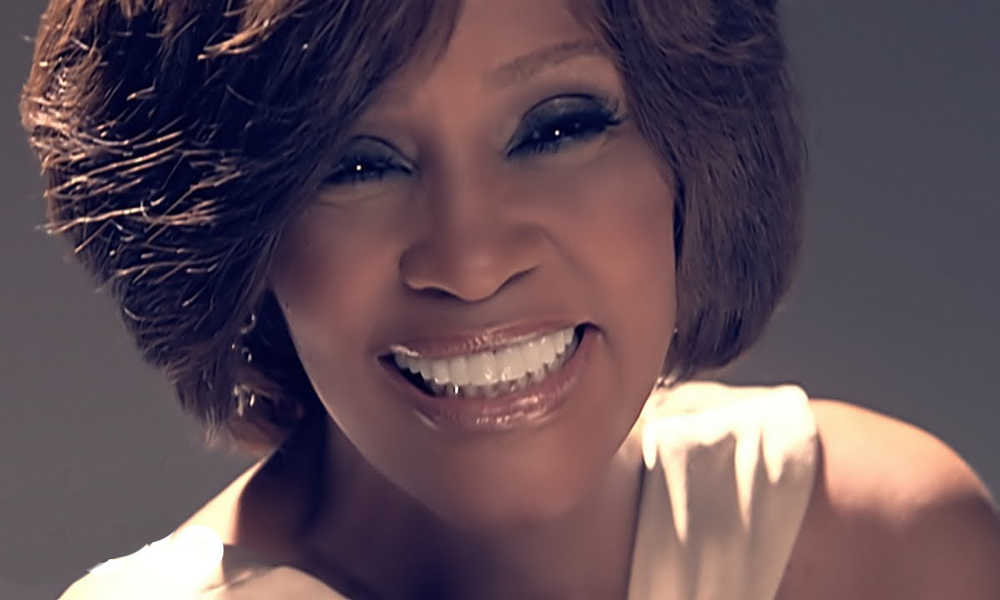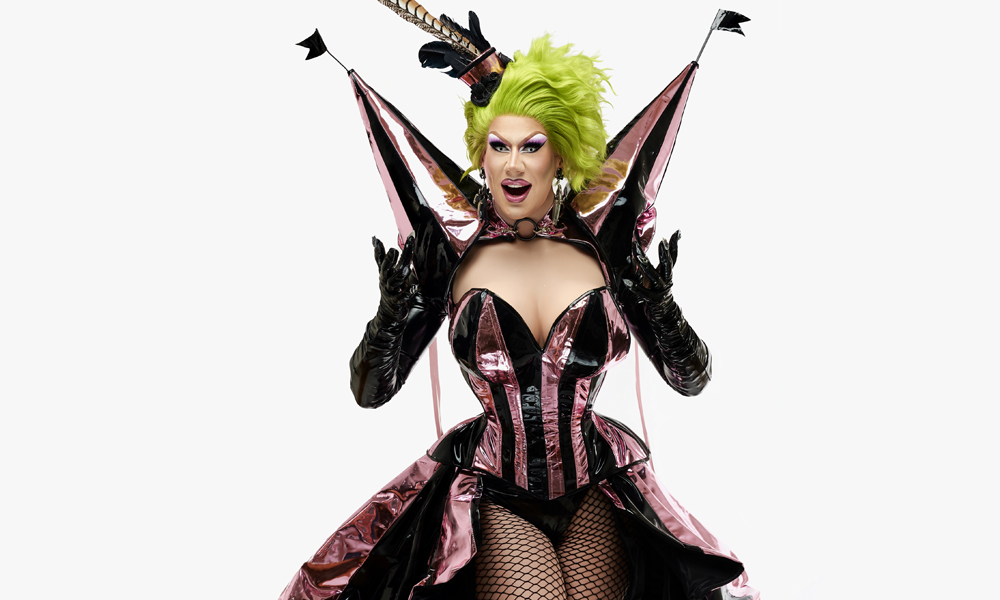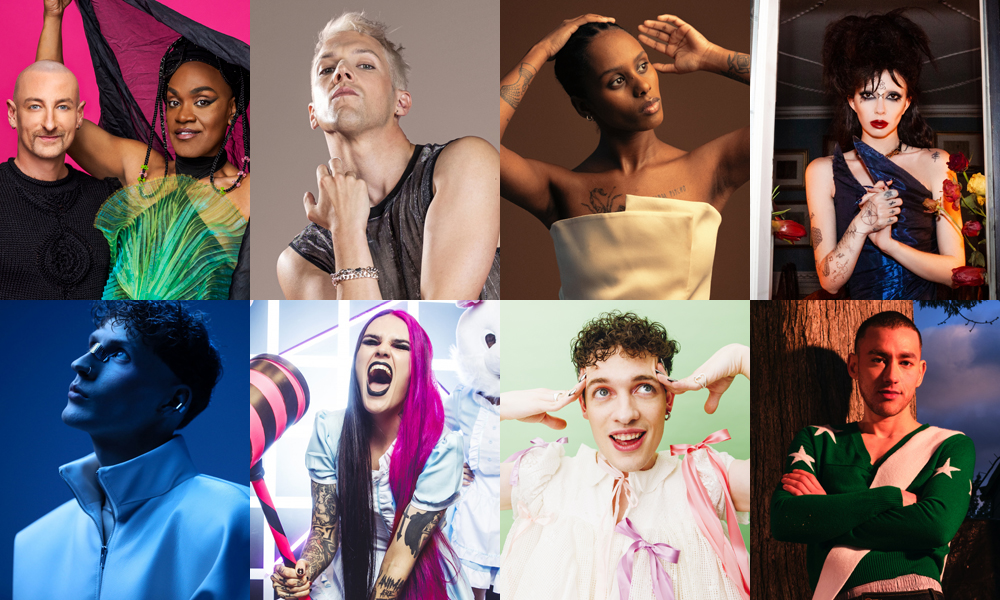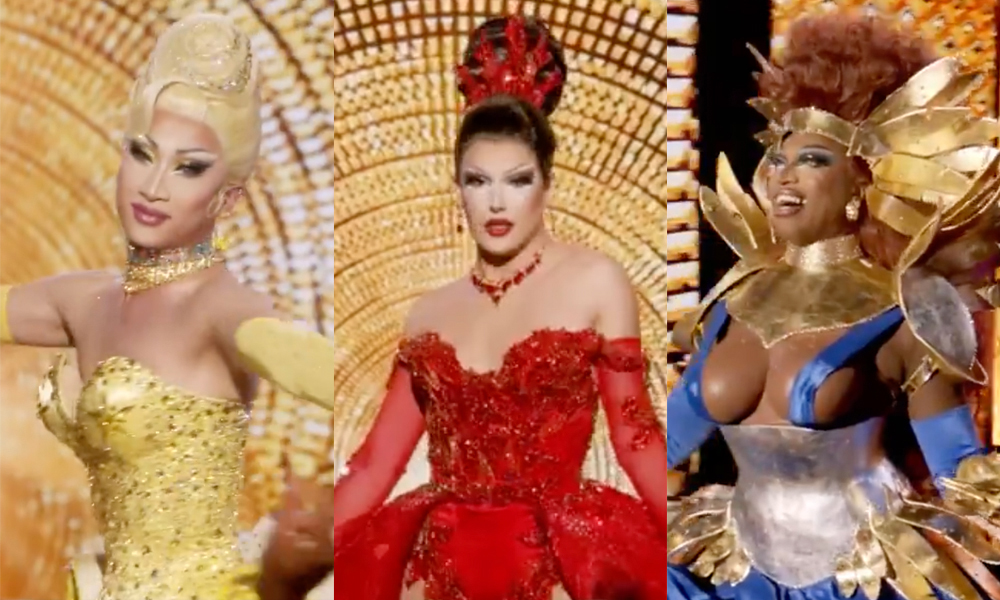Whitney Houston met Robyn Crawford in New Jersey when they were 16…
By Michelle Reddick
Rumours of Whitney Houston’s sexuality are nothing new—the whispers and claims followed the star for decades. But thanks in large part to a few buzzy new films about Houston, her life, her loves and her career—and a new memoir from her ex-husband Bobby Brown—those rumours are getting something of a revival.
In Houston’s case, the rumours have a sombre, dark tone: we know that she struggled with alcohol, drugs and depression. Her family and friends confirm it.
And given the star’s untimely and tragic demise—dead in a bathtub after a drug overdose at only 48 years of age—it raises sorrowful questions. If we know she was unhappy, and many say she was closeted, how much were the two intertwined? And how much did the sum of those parts lead to her death?
According to Brown, the answer is “very much indeed.”
At the centre of those rumours is Robyn Crawford—Houston’s long-time assistant, best friend, confidante, creative director and, according to many, her lover and partner. Although Crawford has never confirmed that there was a romantic relationship, many who worked with Houston claim it was an “open secret” during the early years of her career. Crawford’s father, Dennis, has confirmed there was a romantic relationship, telling Radar Online in April this year, “I knew 40 years ago, we all knew.”
Whitney herself refuted claims of a romantic relationship with Crawford, telling Out Magazine in 2000, “I had friends, ’cause I was close to people. But that ain’t me. I know what I am. I’m a mother. I’m a woman. I’m heterosexual. Period.” In the same interview she continued, “But I love everybody. If I was gay, I would be proud to tell you, ‘cause I ain’t that kind of girl to say, “Naw, that ain’t me.’ The thing that hurt me the most was that they tried to pin something on me that I was not. My mother raised me to never, ever be ashamed of what I am. But I’m not a lesbian, darling. I’m not.”
Whatever the relationship, the two were undeniably close. Houston and Crawford met in 1979 when Houston was just 16 years old. Crawford, in a tribute published in Esquire after Houston’s death, said, “I knew right away she was special.… Not long after I met her, she said, ‘Stick with me, and I’ll take you around the world.” And Houston did.
In Nick Broomfield’s 2017 documentary Whitney: Can I Be Me?, Kevin Ammons, who did security for Houston, says, “Robyn and Whitney were like twins. They were inseparable. They had a bond and Bobby Brown could never remove Robyn.”
Houston’s long-time stylist, Ellin Lavar, said of the pair, “Robyn provided a safe place for her…in that Whitney found safety and solace.”
Crawford quit working for Houston in 2000. The Telegraph reports that she “too often [found] herself in the middle of jealous fights between Houston and Brown, and disapproval from Cissy [Houston’s mother].” It was a tough year for Houston. Her drug habit was getting worse, as was her mental health. There was a slew of cancelled shows and an incident where airport staff found marijuana in her luggage. Clive Davis, who ran the record label where Houston was signed, says 2000 was the year he became aware of her drug problem.
Brown’s thoughts on this period of Houston’s life are chilling. After Crawford left, Houston “didn’t have close friends with her anymore,” he says in his recent book, Every Little Step.
We’ll never know Crawford’s thoughts on their relationship—the former assistant does not give interviews on the topic of Houston’s life and career, or their relationship. The tribute she wrote after Houston’s death is the sole exception. In it, Crawford wrote, “I have never spoken about her until now. And she knew I wouldn’t. She was a loyal friend, and she knew I was never going to be disloyal to her. I was never going to betray her.”
Touchingly, Crawford wrote, “Now I can’t believe that I’m never going to hug her or hear her laughter again. I loved her laughter, and that’s what I miss most, that’s what I miss already.”
If Whitney was gay—or bisexual, as her stylist claims—did she ever consider coming out?
We’ll never know, of course, but what evidence we do have reminds us of how hard (or, as some claim, impossible), it would have been to do so and maintain any semblance of a music career.
“An artist can be extremely gifted and yet remain unsuccessful if he or she records the wrong music, or gets an image that confuses potential audiences,” said Clive Davis in his 1974 memoir, Clive: Inside the Music Business. Davis signed Houston to his record label Arista Records in 1983.
How relevant was this “potential to confuse potential audiences”? Completely, says Rosie O’Donnell, who knew both Houston and Crawford.
“There was no Ellen. There was no Will & Grace,” says O’Donnell. “Lois Smith was my publicist, and she was Whitney’s publicist. When I would go to a show or the Emmys with my girlfriend Kelly, Lois would literally sit between us. She wasn’t doing it to be mean to Kelly. She was trying to protect me.
“At the time, it meant you wouldn’t have a career in show business,” O’Donnell says. “None.”
Racial politics also undoubtedly took their toll. Kenneth Reynolds, who worked at Arista, has said that the label would send back material Whitney had submitted if it sounded “too black.” A saxophonist who toured with Whitney says she was “devastated” to learn Black people were calling her a sell-out and had dubbed her “White-ney”.
In his memoir, Brown suggests that their marriage was a way for her Houston to, as the New York Times summarized: “reclaim her blackness while holding on to a basic image of straightness.” Brown writes, “They couldn’t let Whitney live the life she wanted to live; they insisted that she be perfect, that she be someone she wasn’t. That’s why [the label] wanted Robyn out.”
In fact, the New York Times lays out a timeline that makes the whole relationship seem perfectly orchestrated to bring Houston back into her Black fans’ good graces. Whitney was booed at the 1989 Soul Train Awards during the reading of the nominees for Best R&B/Urban Contemporary Single, Female. In an interview years later, Houston said of the incident, “Sometimes you’re not Black enough. You’re not R&B enough.” The night of the Soul Train Awards, Houston flirted with, and asked out Brown, who had recently become popular with Black youth.
It’s well known that Houston’s record label tried to cultivate a star with mainstream appeal, but did they go so far as to maintain that appeal by covering up her sexuality?
Clive Davis claims ignorance of any relationship between Crawford and Houston, saying he and Houston “never discussed it.” Rosie O’Donnell refutes this, saying, “For Clive Davis to claim ignorance about this is, I believe, a boldfaced lie.” Davis says that claims he tried to cover up the singer’s true sexuality are untrue.
Whatever the truth, it seems evident that Houston’s struggle to balance fame, her relationship, and perhaps the pressures of living in the closet all played a major part in her death.
Brown’s thoughts on the matter, as expressed in his memoir, are haunting and poignant: “I really feel that if Robyn was accepted into Whitney’s life, Whitney would still be alive today.”
—
MICHELLE REDDICK is a writer and editor living in Toronto, Ontario. She writes about food, family, social justice things, and good reads. Follow her on Twitter at @Michella_eh.






Loria pete / 02 February 2018
So she had a bisexual relationship. When Whitney had the love of the country at that point she could’ve gone with a dog and it would’ve been ok. Noone really could tell whitney what to do if she felt otherwise according to what I’ve read. After boby whitney sort pens not vjjs.I’m sick of the name Robyn Crawford. Why did whitney go get her after divorce. THE LOVE OF HER LIFE..she had enough monies.fame and all that went with it. Did whitney love Crawford more than bobbi kris ? She would leave her motherless because she could not have Crawford in her life so she had to abuse drugs.whitney gave up the respect of the world because she couldn’t admit she was bi. GIVE ME A BREAK. WHO CARES WHAT ROSIE ODONALDTHINK SHE KNOWS. Rip.
Betty / 11 June 2021
Damn I know this comment was from ages ago but I just have to reply, You say that Whitney had the “love of the country” but even in this article it clearly talks about how she was booed at the Soul Music awards, if she had the love of the country, why was she booed?
Regardless if it would have been okay in the eyes of the country, it goes on to state that her mother would have been pissed and not accepting of it, so she still would have issues within her family about her sexuality that would have made her feel shameful etc and deter her from coming out, if your own parents can’t accept you, why would the public? You clearly have no idea how hard it is to come out about your sexuality to straight up homophobies, you are ostracized from your own family and when that’s the only thing you have, you don’t want to risk it.
And you also have zero knowledge on the effects of drugs on your brain as well, the whole “leaving someone motherless” thing is not something addicts worry about at the time, drugs rewire your brain and you don’t consider consequences like those when you are in too deep, its not fair to say that, nobody would ever want to leave their children behind on purpose.
And I’m not sure what Robyn Crawford was doing at this time but if she had her own relationship at this point, Whitney couldn’t have just chose to take her, and I’m sure she was so used to lying about her sexuality at that point that she didn’t even consider being out at all ever, her mother shamed that thought out of her, I dont think she ever planned on coming out.
Also I care what Rosie has to say, she was there, you were not.